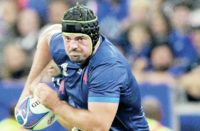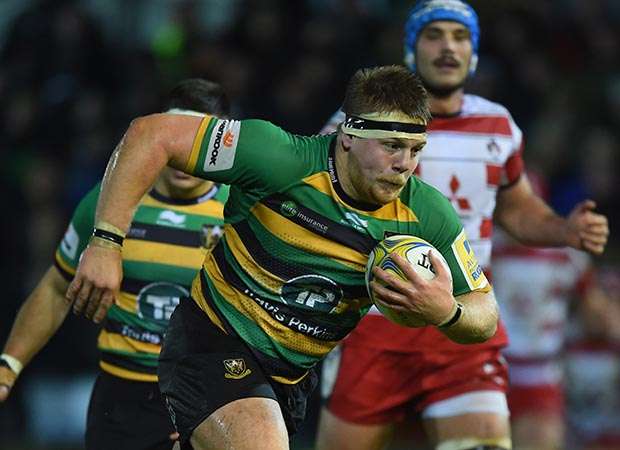 It's simple, mate: if you're not in the squad you haven't done enough to get there. That's the Eddie Jones approach to selection, and it's why the new England boss' first squad announcement at Twickenham last Wednesday – which saw seven uncapped players selected and 11 of the previous regime's regulars axed – was such a breath of fresh air.
It's simple, mate: if you're not in the squad you haven't done enough to get there. That's the Eddie Jones approach to selection, and it's why the new England boss' first squad announcement at Twickenham last Wednesday – which saw seven uncapped players selected and 11 of the previous regime's regulars axed – was such a breath of fresh air.
It was a message to England's elite tier of players which was more than a decade overdue, because the Red Rose has done nothing apart from slip steadily down the world rankings since 2003. The 55-year-old Aussie has earned his spurs as an international coach, and when he talks about England “underperforming” given their wealth of rugby resources, there is an ocean of evidence to back it up.
Part of the malaise has been the embedding of a ‘get-out clause' culture rather than its no excuses alternative. It reached its apex under Stuart Lancaster with England always seemingly on a journey to accumulate enough caps, or connect with their heritage, or appeal to fans for support, rather tending to the core business of winning Test matches and ensuring that every man in the squad was eyeballs-out in pursuit of becoming world class in his position.
The upshot? In the 2015 World Cup there was not a single England player who would have made a World XV, or even a World 2nd XV. Talk about taking your eye off the ball.
It reminds me of a conversation with Lawrence Dallaglio when the world champions went into free-fall in the seasons that followed the 2003 Sydney triumph. He said that part of the problem was that many of the next generation of players coming into the England squad had failed to grasp just how much dedication, single-mindedness and unrelenting hard work it took to get to the summit.
It explains why, despite all the conditioning and nutritional advances that should have been made since 2003, that Dallaglio and his World Cup-winning comrades – especially those in the pack – looked substantially fitter than the majority of their 2015 counterparts.
Well, Eddie Jones is about to deliver a sharp reminder of what it takes – and those players who do not have the required drive and ambition will soon become casualties. The peak will no longer be playing for England, it will be about becoming a world champion.
Jones takes the view that a side with World Cup-winning aspirations needs a minimum of five world-class players, and he believes that he has a number of candidates in the 33-man squad he has picked – although without specifying who.
The Australian has not acquired a reputation as an astute, adventurous selector by accident, and he lived up to the billing with a radical rearrangement of the England pack. This was an infusion of new blood, with 13 of the 19 forwards picked aged 25 or under. Although there were still familiar faces, there was a culling of the failed 2015 World Cup crew, with Tom Youngs and Tom Wood the biggest casualties.
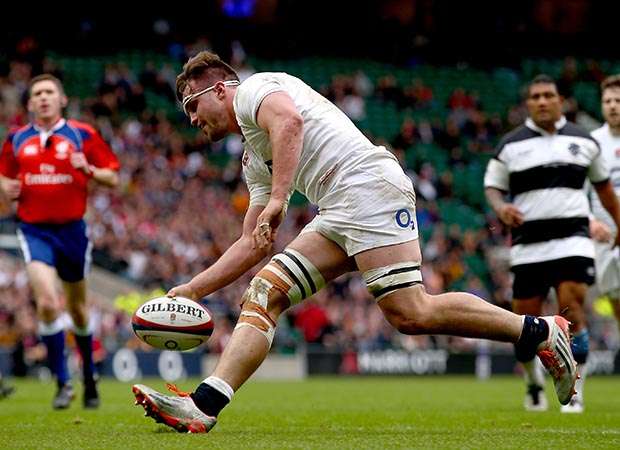 The fastest bolter was Paul Hill, top, the 20-year-old Northampton tight-head, with Maro Itoje (Saracens lock), Jack Clifford (Harlequins back-row, above) and Josh Beaumont (Sale No.8, below) not far behind. With all four players uncapped, and aged 22 or under, Jones is aiming to hit the twin targets of picking young players who can perform at the highest level now, while becoming increasingly formidable as they garner experience.
The fastest bolter was Paul Hill, top, the 20-year-old Northampton tight-head, with Maro Itoje (Saracens lock), Jack Clifford (Harlequins back-row, above) and Josh Beaumont (Sale No.8, below) not far behind. With all four players uncapped, and aged 22 or under, Jones is aiming to hit the twin targets of picking young players who can perform at the highest level now, while becoming increasingly formidable as they garner experience.
The next tranche of forwards are barely more experienced with George Kruis (ten caps) and Henry Thomas (seven caps) at the upper end, and Jamie George and Matt Kvesic (two caps each), and Luke Cowan-Dickie (one cap) at the lower.
The young ‘old lags' include loose-heads Joe Marler (37 caps) and Mako Vunipola (30 caps) – both of whom are still only 25 – and two under 25s in Joe Launchbury (28 caps) and Billy Vunipola (21 caps).
Lastly, we have the survivors from Graham Rowntree's pack, with Dylan Hartley (66 caps) as the daddy, and James Haskell (62 caps), Dan Cole (59 caps), Chris Robshaw (43 caps) and Courtney Lawes (42 caps) as his henchmen.
Furthermore, so that they, and the rest of us, were left in no doubt about the competition for the shirt in each position that Jones expects, Thomas was named as a tighthead injury replacement for Kieran Brookes, while Kvesic filled the slot in the back-row reserved for Exeter's Dave Ewers.
Having advocated a complete overhaul of the pack in these pages a month ago, it is good to see the England head coach take such bold steps to put it right. The measure of how good that rebuild is will come rapidly, with the game against a revived Scotland side in Edinburgh only three weeks away.
It is a daunting undertaking given that Jones will have only seven coaching sessions until the match, with the restrictive requirement that he releases ten players back to their Premiership clubs only two days after the squad convenes on January 24/25.
Jones said: “I don't have any control over that, but I' m not complaining about it. I' ve got to make decisions very quickly…that's my major job –
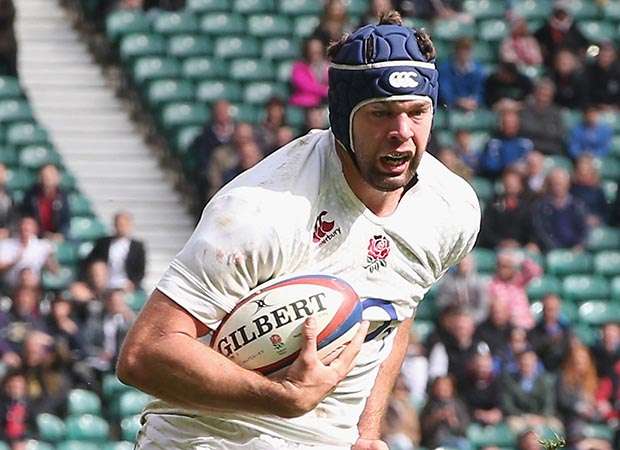 I' ve got to get selection right. So, I've always had an idea of who I wanted to play. Players can change that, and they've got an opportunity over the next couple of weeks. That's the job I do, and that's why I have sleepless nights.”
I' ve got to get selection right. So, I've always had an idea of who I wanted to play. Players can change that, and they've got an opportunity over the next couple of weeks. That's the job I do, and that's why I have sleepless nights.”
That presents him with very little chance to change the match 23 that he says he has in mind already – injuries in the remaining two rounds of the European Cup permitting. If he is lucky enough to lose no more players it would be surprising if Mako Vunipola, Hartley and Cole did not start in the front-row against Scotland, with Launchbury and Lawes at lock, and with a back-row mix of Robshaw at blindside, Clifford at openside, and Billy Vunipola at No.8.
It is what Jones does with his bench that will be the point of difference. George, Paul Hill and Marler are the likely front-row cover, with either Kruis, Itoje or Beaumont covering the bases in the back five, and Haskell the back-row.
Of the discarded forwards from the Lancaster era, Tom Youngs has elicited the most sympathy, but his failure to master the art of striking at the scrum will have prompted his dismissal by Jones, a former Randwick hooker. It is a basic requirement, and Youngs has not adapted quickly enough, with the same applying to Rob Webber. As Jones' forwards coach Steve Borthwick put it after being asked whether England will seek to attack off the scrum like Japan did in the World Cup: “Hookers are going to have to hook the ball.”
Of the others axed, Geoff Parling is in veteran territory after a quiet World Cup, and David Wilson also failed to enhance his standing during the tournament. The same was true of Ben Morgan, and if the Gloucester No.8 wants to get back in favour following injury his work-rate is going to have to go through the roof. Another notable casualty was Wood, whose industry at blindside cannot be faulted even if his effectiveness sometimes can.
One of the surprises was that although Dave Attwood and Ed Slater are both injured, they are not ranked among the top four locks. I suspect Jones will need their size and steel. It has also emerged that Kvesic, who is the only openside in the squad playing in the position regularly for his club, is third in the No.7 pecking order behind Clifford and Haskell.
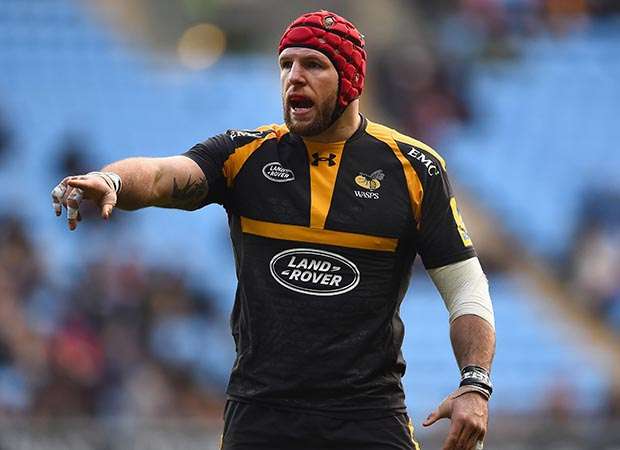 Haskell's consideration as a 7 is puzzling, especially as George Smith is playing there for Wasps (and they have two handy understudies in Guy Thompson and Thomas Young).
Haskell's consideration as a 7 is puzzling, especially as George Smith is playing there for Wasps (and they have two handy understudies in Guy Thompson and Thomas Young).
This deviates from the form-book, because Kvesic has been consistently good for Gloucester. It is probably because the impressive Clifford is the fastest option, with Kvesic having lost some of the speed he had when showing well against New Zealand's Sam Cane in the 2011 Junior World Championship final.
Nor is it difficult to see why Jones puts a high premium on pace at 7 given that Robshaw and Billy Vunipola are hardly greyhounds.
However, asked whether a lack of pace in the back-row against the Scots was a concern, Jones was unfazed: “I don't think at Murrayfield it will be. If we're playing the All Blacks at Eden Park or in Dunedin indoors it may be a concern. Then we might have to supplement them with an openside that's got pace – but not in the Six Nations.”
If the backline requires less fixing than the forwards, there is still a sizeable hole to fill at inside-centre – the position that turned into a black-hole for Lancaster following his promotion of Sam Burgess.
Jones' decision not to plug it with either Brad Barritt all Luther Burrell points towards Owen Farrell being given the job at 12 until Manu Tuilagi is match-fit, with the Leicester powerhouse earmarked for duties at inside-centre rather than 13.
The reshuffle means that initially George Ford is likely to be handed the key to No.10 again, and with only two fly-halves picked, and Alex Goode as a utility option, Danny Cipriani was surplus to requirements.
However, opportunity knocks for Sam Hill and the Will Greenwood-tall Ollie Devoto, who is leaving Bath this summer to join Hill and Henry Slade at Exeter. Rumbustious inside-centre Hill was named as a replacement for injured team-mate Slade.
There is a symmetry to the way Jones appears to be marshalling his squad, with Hill offering a similar head-on physicality at 12 to Tuilagi. The same balance is evident at 13, where the in-form Elliot Daly comes into contention, challenging Jonathan Joseph for the shirt – while Jack Nowell is also making a case as another option.
Joe Simpson can count himself unlucky not to break the Ben Youngs-Danny Care grip on the scrum-half jersey. Richard Wigglesworth is another 9 having to come to terms with being jettisoned, but his Saracens team-mate, Chris Ashton, finally got the break he has been waiting for by being included at wing after being out in the cold during Lancaster's last two years.
This wrong-footed some pundits because it had been circulated widely that Jones liked his wings big and strong, putting Matt Banahan and Semesa Rokoduguni in the frame.
However, Jones, as we can see from his first squad, is not scared to do the unexpected, or to shake things up.


